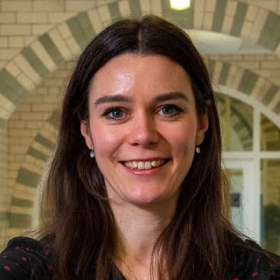In a pandemic world, connecting with fellow researchers outside of your own research space or city, but also country, has become incredibly easy. Thinking back about how I connected with collaborators in the Netherlands and Colombia before the pandemic, the sheer novelty of using skype to have a research meeting, trying to find a quiet room with a screen and stable internet connection. Those patchy connections are luckily in the past now, and probably the only good thing to come out of this pandemic?.
But how do you even set up overseas collaborations in a time when conferences and meetings are taking place from the comfort of our own home? Don’t get me wrong, working from home is working incredibly well, providing a much better work life balance than before, avoiding unnecessary hours of commuting every day merely to sit in an office. The thing I do miss though is going to conferences, doing site visits, and proper networking.
Before the pandemic, I would meet new collaborators at conferences, research events and talks. I also met some via social media though. What seemed a really uncertain time, research-wise, back in March 2020, actually led me to conduct the most collaborative and international research so far.
Being on social media has definitely helped, and I feel like I know many fellow dementia researchers despite never having met face-to-face! It has enabled me to work with new collaborators in Australia, Poland, Uganda, India, and Italy, and conduct international comparisons into the effects of COVID-19 on people with dementia and carers [1].
Once you have established some new collaborations, running international research can be tricky but also incredibly rewarding. Tricky in terms of time zones and language barriers for example. In an ESRC-funded project with researchers from the University of Antioquia in Colombia for example, we use subtitles in our Zoom meetings, which at times make me having to suppress a laugh as they clearly don’t always pick up the correct words. And yes, I have started learning Spanish, but it may take some time to be speaking more than just a few words. ‘Personas mayores’ is key for the project, and means older people. See, I can speak a few words..
Now collaborations with Germany are much easier in that regard, no language barriers!
One thing I found really useful for international projects is to have a shared Microsoft Teams channel, where you can upload your documents in a safe space and also chat with one another outside the medium of emails, or outside of meetings too. There are always some issues you need to discuss ad hoc, and I found the chat function in there to be really helpful.
Whilst I have learned a great deal about the different countries and systems for older people and people with dementia already, one thing we sadly don’t get with remote international collaborations is truly understanding what goes on in dementia care in a country. Moreover, it may be difficult to maintain international collaborations if you’ve only ever met via Zoom or Teams. That’s why I’m looking forward to the day we can meet face-to-face and hold site visits, to really learn from other settings and countries. Who knows, maybe 2022 is the year?

Dr Clarissa Giebel
Author
Dr Clarissa Giebel [2] is a Senior Research Fellow at the University of Liverpool and NIHR ARC North West Coast. Clarissa has been working in dementia care research for over 10 years focusing her research on helping people with dementia to live at home independently and well for longer, addressing inequalities that people with dementia and carers can face. Outside of her day work, Clarissa has also organised a local dementia network – the Liverpool Dementia & Ageing Research Forum, and has recently started her own podcast called the Ageing Scientist [3].